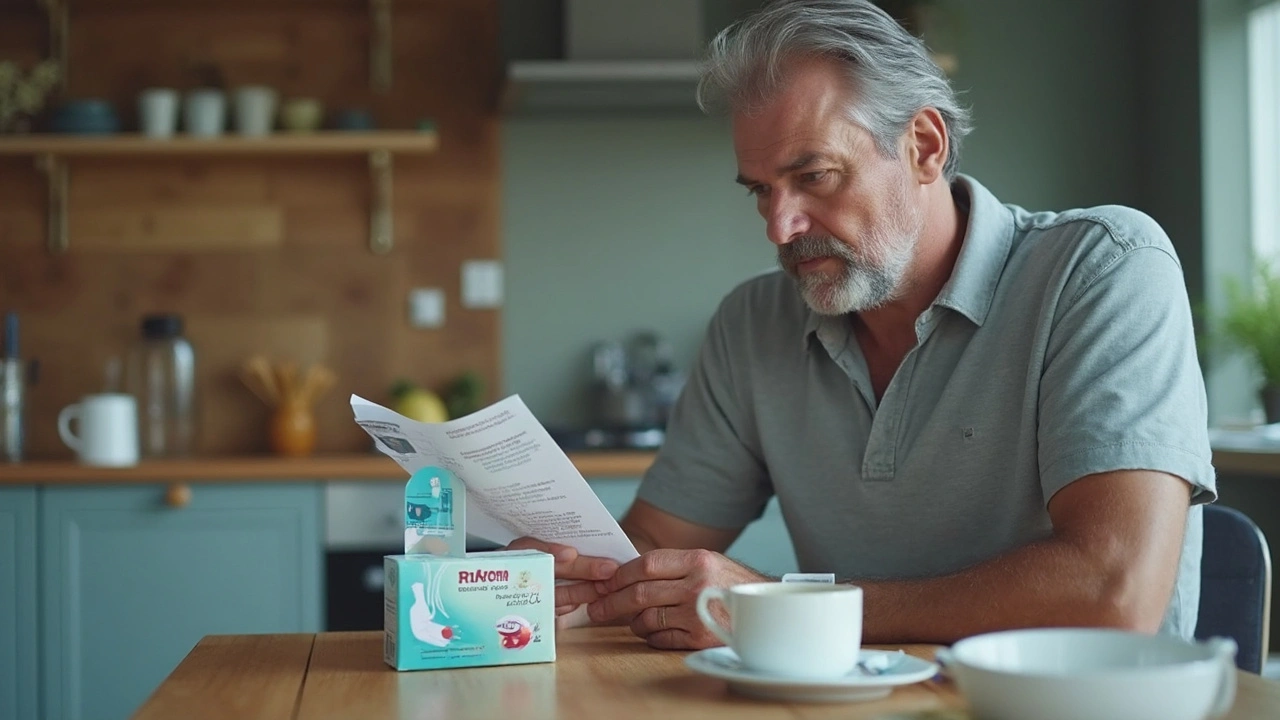GERD: What to Watch For and How to Start Feeling Better
Heartburn after meals? That burning, sour taste can be more than an occasional nuisance. GERD (gastroesophageal reflux disease) means stomach acid comes up into the esophagus often enough to cause symptoms or damage. You’ll usually notice heartburn, regurgitation, or a sore throat, but GERD can also cause coughing, hoarseness, or trouble swallowing. Know these signs so you don’t keep treating symptoms the wrong way.
Not every bad night of heartburn is GERD. If it’s frequent (two or more times a week) or affects sleep, it’s time to treat it as more than a one-off. You can start with practical fixes, and a pharmacist can help you pick the right over-the-counter option. If symptoms stick around despite treatment, see a doctor for testing and stronger therapy.
Quick fixes and medicines
Start simple: antacids (like calcium carbonate) work fast for occasional heartburn. If you need something longer-lasting, try an H2 blocker (famotidine) for mild, predictable reflux. For frequent or moderate GERD, proton pump inhibitors (PPIs) such as omeprazole or pantoprazole are the go-to—take them 30–60 minutes before your main morning meal for best effect.
Other useful options include alginate-based products (Gaviscon) that form a foam barrier to stop reflux. Prokinetic drugs exist but have limits and side effects, so they’re less common. If you’re on blood thinners or other medicines, check with a pharmacist: omeprazole can affect clopidogrel, and long-term PPIs can change absorption of some drugs and nutrients (B12, magnesium).
Short-term tips: avoid eating 2–3 hours before bed, elevate the head of your bed 6–8 inches, lose even a small amount of weight if you’re overweight, and cut triggers like coffee, alcohol, chocolate, peppermint, and fatty or spicy foods.
Long-term care and when to get help
If antacids or OTC meds don’t help within a few weeks, or if you have trouble swallowing, unexplained weight loss, vomiting, or black stools, see a doctor right away. They may order an endoscopy, pH monitoring, or imaging to check for esophagitis, strictures, or Barrett’s esophagus. Treatment can include higher-dose PPIs, prescription meds, or in some cases surgery or endoscopic procedures.
Talk with your pharmacist before combining therapies. They can spot drug interactions, suggest step-down plans (moving from PPI to H2 blocker), and advise on timing and dosing. If you want to try supplements or herbal remedies, ask first—some can irritate reflux or interact with prescriptions.
Want a quick plan? Try lifestyle changes + antacid for a week. If symptoms return often, switch to an H2 blocker or a short PPI course and check with a pharmacist. Persistent issues need medical review. Small, consistent changes usually make the biggest difference.

